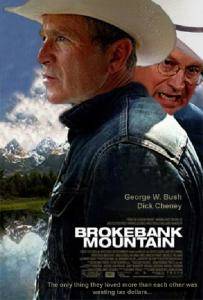How impressed should we all be about the somewhat astonishing announcement from China last week that its economy is way, way bigger than previous numbers indicated? Some analysts immediately began painting dramatic scenarios of China’s imminent ascent to Superpowerdom. (Though few, I suspect, stopped to consider just how teensy-weensy the output of the average Chinese worker is.)
The New York Times has an excellent piece on this subject, especially for those who are enamored of business stories (which I am not). Brief excerpt:
Even with the expected revision, China’s output per person will climb to a little more than $1,700 this year. It ranked 134th in income per person in 2003, according to the World Bank.
Though its statisticians are highly trained, China is still quite secretive about its methods and means for gathering economic data. This has long generated debate among economists, much as the Soviet Union’s economic figures did: some economists think China’s figures disguise weakness, while others think they hide strength.
The figures for China’s national accounts – the numbers that measure gross domestic product, including spending and trade – are supplied by its National Bureau of Statistics.
The bureau publishes several sets of statistics – some as often as monthly – based either on its own estimates or upon numbers supplied by China’s local governments. But those figures can vary widely. Totting up regional gross domestic product in 2003, for example, gives a figure of $1.6 trillion, 12 percent to 15 percent higher than the bureau’s own estimates.
The discrepancy also underscores a difference in incentives. Provincial and municipal authorities want to impress Beijing and limit any embarrassments, as the delays in reporting bird flu cases and the chemical spill in Jilin Province have shown.
Beijing worries more about its reputation in the rest of the world, where accuracy is paramount.
There are other reasons that huge swathes of the Chinese economy are unreported, said Frank Gong, the chief China economist for J. P. Morgan Chase.
“The way they collect the G.D.P. is really from supply-side, production-based statistics,” he said.
Mr. Gong suggested that collecting data from the demand side – what consumers actually spend – would be more telling.
In a system left over from when China was almost entirely a planned economy, however, all the factories and supermarkets report their own sales and spending.
Well, not so brief after all, sorry. Anyway, it does a good job of explaining how and why China’s statistics are so different from those of realother countries. Strangely enough, most countries believe they can still be great and worthwhile and still offer the world accurate statistics about their economies. Why does China feel if it doesn’t puff things up they’ll look bad? Don’t they get it, that it’s the puffing up that makes them look bad, not the numbers themselves?

Comments